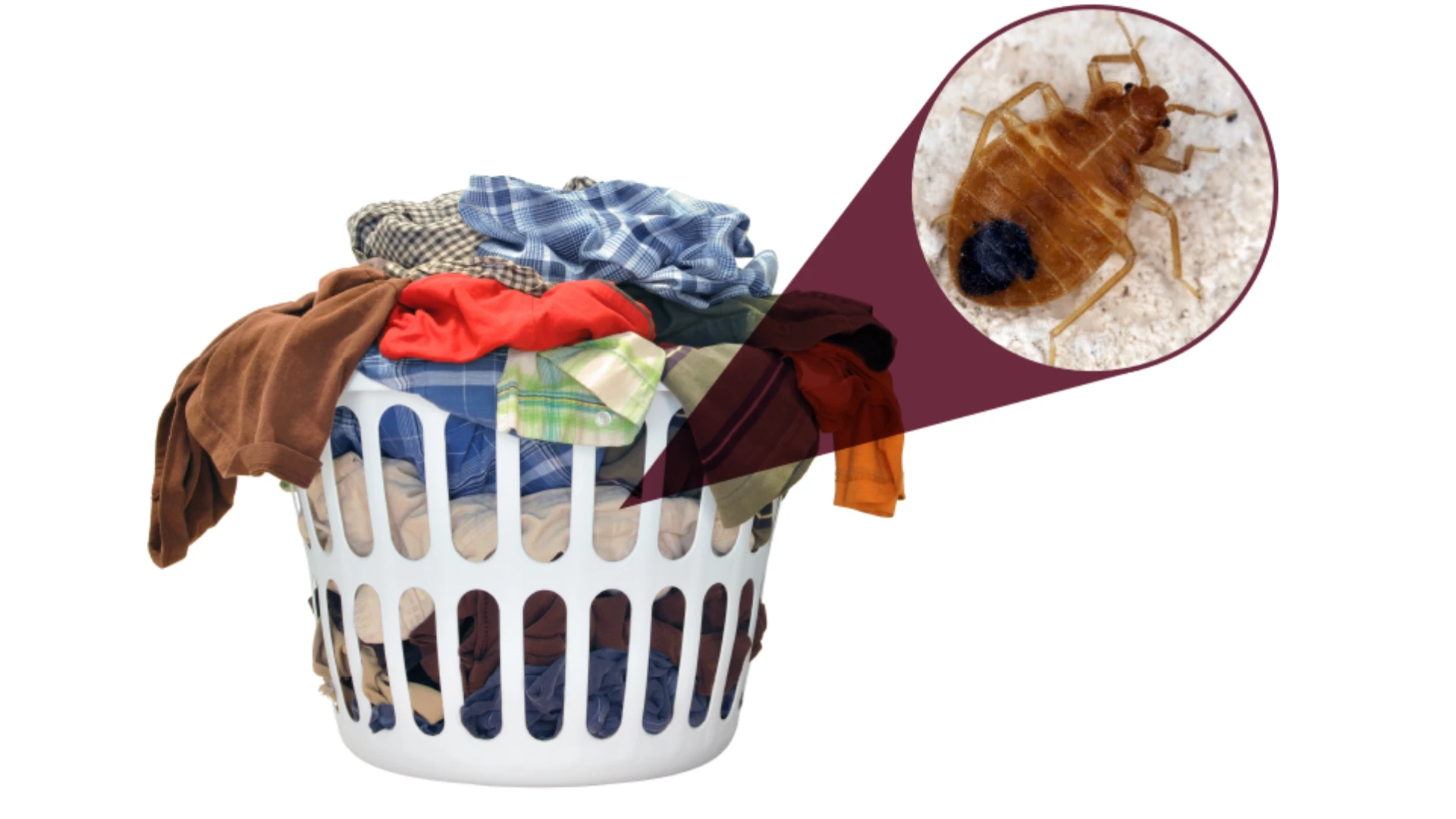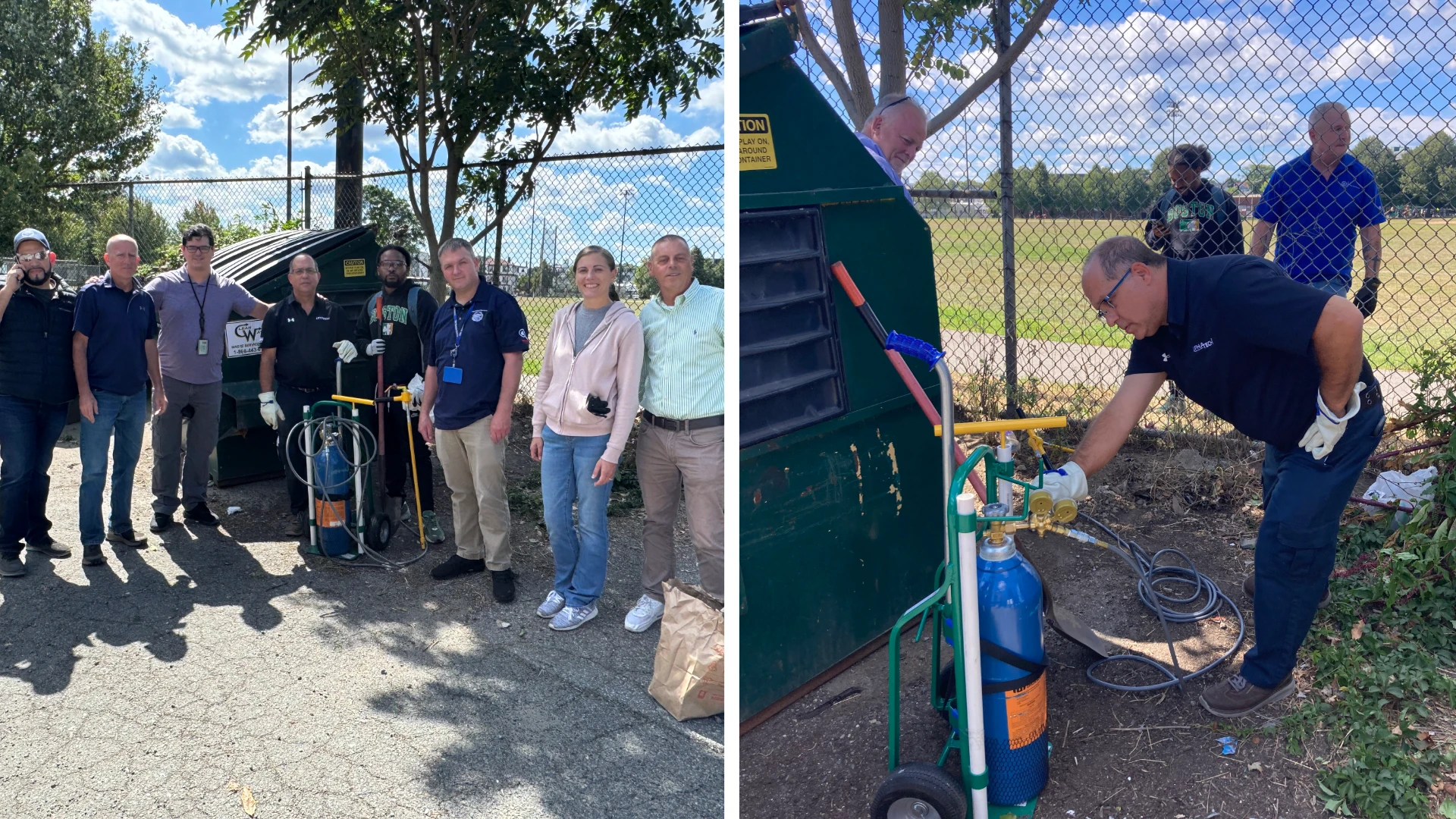As a 10-year-old growing up in rural Kansas, catching scorpions and snakes was just about the best activity John Klotz could imagine. Enamored with the outdoors, he also had the ideal living environment to feed his curiosity — a 70-acre farm with a woods, two ponds, and a creek offering endless entomological possibilities.
Thankfully, that sense of curiosity and love for nature never went away, ultimately enriching the pest control industry. Today this highly regarded researcher, author and urban entomologist is counted among the best and brightest, particularly when it comes to ants, upon which Klotz has based much of his research and writing.
Yet, Klotz is humble about his achievements, pointing instead to the gifted professionals he’s been fortunate enough to work with over the years; people such as Gary Bennett, Dick Patterson and Mike Rust, and their associates at Purdue University, USDA-ARS, and UC-Riverside, respectively.
And while those connections certainly count for something, it’s Klotz’ own enthusiasm for the field that’s made him something of a legend. The entomologist retired to Arizona last year from the University of California, Riverside, but still serves in an advisory role. In June of 2010 his work on the serious health risks posed by kissing bugs and why they necessitate professional pest management efforts was published in the influential medical journal Clinical Infectious Diseases. And with two books covering ants and numerous other studies, articles and speeches to his name, Klotz continues to amass a legacy of knowledge few can rival.
EDUCATIONAL PURSUITS. "Anything to do with biology or structural pests is of great interest to me," Klotz says. So it’s not surprising that for much of his career, Klotz has focused on research in an urban setting.
At the same time, high academic aspirations also tend to run in the family’s blood. His father, Arthur, was a professor of medicine at the University of Kansas, and his older brother Steve is a professor of medicine at the University of Arizona. "Education was a really big thing in our household and my dad was very supportive," Klotz notes, "helping me with science fair projects and other school activities." Klotz also has a sister, Suzanne, who works as an artist. His mother, Margaret; father; and younger brother, Peter, are deceased.
Klotz recalls his parents being at once supportive but unsettled by the young researcher’s early interests. "One time, I brought home a black widow spider that had an egg case. They hatched in the jar I was keeping the spider in and one day the jar fell over and broke in the basement. I remember my mother asking what kind of spiders they were. When I told her, she wasn’t too happy." Even so, Klotz says, his parents tolerated his insect collections and entomological aspirations.
In high school, Klotz says his favorite subject was biology, and he excelled at it, thus laying the groundwork for his future studies and career. Klotz went on to earn his bachelor’s degree at Rockhurst College in Kansas City, Mo., where he studied biology before moving on to the University of Kansas where he earned a master’s degree and doctorate in entomology.
Among the faculty members at University of Kansas were Charles Michener, a world-renowned authority on bees, and Rudolf Jander, a student of Karl Von Frisch, who won the Nobel Prize in Physiology or Medicine in 1973. Jander, who is an expert on ant behavior, served as a mentor to Klotz.
"College was a critical point in getting me interested in research," Klotz reflects. "I was fortunate to have a mentor who set high standards of scientific excellence. He got me interested in ants and ant behavior."
Klotz spent four years in the U.S. Navy beginning in 1968. "I wanted to see the world, so I enlisted. I went on three western Pacific cruises. I started out on the deck force and ended up in gunnery," Klotz recalls. "I did a lot of painting and a lot of shooting," but he ultimately decided a career in the Navy was not for him, returning to school after being honorably discharged.
WORK EXPERIENCE. After earning his Ph.D., Klotz took a teaching job, passing his curiosity on to middle school students in Kansas City where he taught science and AP biology for three years. His first day teaching a fifth grade class was a culture shock for Klotz. It was a private school, and he didn’t have the teaching credentials that many of his co-workers did. "Somebody told me that because I didn’t have any teaching experience, I should go in there with both barrels. They told me you can’t ease off. So, early in my tenure at the school, I gave a kid a detention and he started crying. Later that day, the headmaster’s secretary saw me and said, ‘I heard you gave my son a detention today,’ so things didn’t start out too well for me, although eventually I got the hang of it."
The experience convinced Klotz that good teachers are worth every penny they earn. Looking back, Klotz now calls himself an "okay" teacher but says he "never got the discipline thing down." Even so, Klotz was rewarded recently when he received an email from a former student who told Klotz he never had a better teacher. "That was nice to hear," he says.
After three years at the middle school, Klotz decided to move on. He found a different sort of teaching job with Lloyd Pest Control in San Diego, joining the company as technical director. "Herb Field was my first mentor in the structural pest control industry," says Klotz of the Lloyd COO. Klotz started out at the company teaching basic training courses, and eventually moved into certifications, licensing and continuing education. In this role, Klotz found he was able to apply his basic research knowledge to work in the field. "I had a lot of interest in the practical aspects of urban entomology," he recalled. "It was a fascinating subject for me."
In 1990, Klotz broadened his experience further when he accepted an entomology position at Purdue University’s Center for Urban and Industrial Pest Management, working with Dr. Gary Bennett, Byron Reid and Bobby Corrigan. Three years later he joined the USDA-ARS Household Insect Unit in Gainesville, Fla., where he worked closely with Dick Patterson and Dave Williams, as well as David Oi and Karen Vail. Klotz then joined the University of California, Riverside in 1996 as a research and extension entomologist, working with Mike Rust, Don Reierson and Les Greenberg.
Looking back, Klotz feels fortunate to have built such a varied network of colleagues. "I got to work with quite a cross-section of academics and industry people," Klotz observes.
Furthermore, he points out the importance of combining practical experience with academic pursuits. "Basic research is important and contributes a lot to our knowledge of pests," but, he adds "without that field experience, I could have never translated that basic research into something of value for the industry."
SHARED WISDOM. There’s no doubt the industry has benefitted from Klotz’ contributions. In 2005 he co-authored Carpenter Ants of the United States and Canada, with Laurel Hansen of Spokane Falls Community College, followed in 2008 by Urban Ants of North America and Europe, which Klotz co-authored with Hansen, Michael Rust and Reiner Pospischil. Klotz also served as a contributing editor of the ant chapter for Ninth Edition of The Mallis Handbook of Pest Control, and recently co-authored a new book from the University of California Department of Agriculture and Natural Resources called Urban Pest Management of Ants in California. The other co-authors are Laurel Hansen, Herb Field, Mike Rust, David Oi and Ken Kupfer, who is an environmental pest management systems developer located in Nokomis, Fla.
Most recently, Klotz’s work was published in the June 2010 issue of Clinical Infectious Diseases, a highly-regarded medical journal. He and several other researchers, including his brother Steve, wrote about the serious health risks posed by kissing bugs, and why they may necessitate professional control measures.
Another highlight of Klotz’ career, he says, were his efforts to plan and organize the University of California, Riverside’s Annual Urban Pest Management Conference, which he did from 1997 to 2009. "I was the chair of the conference a number of years, and we were able to share our research with the industry and with a lot of great industry speakers from across the country," asserts Klotz.
Klotz and his wife of 20 years, Jenny, recently retired to Sedona, Ariz., moving into a home his parents purchased years earlier but had not been occupied full-time for many years. Besides renovating their home, the couple also spends time caring for their three dogs: two Australian shepherds and a Springer spaniel. And Klotz is an avid swimmer, logging 10,000 meters a week.
When asked to describe himself, Klotz uses the words "curious" and "persistent." "When I put my mind to something I see it through to the end, which has been very helpful in my science career and is a good quality for a researcher." Klotz also views himself as a lucky individual, having had the opportunity to work with so many gifted professionals throughout his career.
Meanwhile, Jenny admires her husband’s keen sense of humor. It’s a quality that’s readily evident when Klotz is asked a simple question, such as what he’d like written on his tombstone. To that he replies: "I thank ants for providing my livelihood, and I ask forgiveness for any accidental deaths I may have caused."
*****
IN BRIEF
NAME: John Klotz
COMPANY/AFFILIATION: University of California, Riverside
LOCATION: Sedona, Ariz.
TITLE: Cooperative
Extension Specialist Emeritus
PERSONAL: Married 20 years to wife Jenny; enjoys his three dogs, swimming, and the outdoors.
CAREER HIGHLIGHTS: Research and extension entomologist, University of California, Riverside, 1996-2009; technical director, Lloyd Pest Control, San Diego, 1988-1990; entomologist, Center for Urban and Industrial Pest Management, Purdue University, 1990-1993; entomologist, USDA-ARS Household Insect Unit, Gainesville, Fla., 1993-1996; Pacific Branch Entomological Society of America Recognition Award in Urban
Entomology recipient in 2008, 2006, 2004; Distinguished Service Award for Outstanding Research, California Farm Bureau Federation in 2000;
co-author, Carpenter Ants of the United States and Canada, and Urban Ants of North America and Europe and Urban Pest Management of Ants in California; contributing editor, The Mallis Handbook of Pest Control, Ninth Edition; chairman, UCR Annual Urban Pest Management Conference, 1997-2009; B.S., Rockhurst College, Kansas City, Mo.; M.S. and Ph.D., University of Kansas, Lawrence, Kan.; U.S. Navy veteran

Explore the October 2010 Issue
Check out more from this issue and find your next story to read.
Latest from Pest Control Technology
- Rentokil Terminix Expanded in Key Markets with 2024 Acquisitions
- In Memoriam: Joe Cavender
- Certus Acquires Green Wave Pest Solutions
- Liphatech Adds Alex Blahnik to Technical Team
- Do the Right Sting: Stinging Insect Identification, Management, and Safety
- VAGA's 8th Annual Veterans Thanksgiving Appreciation Dinner
- Clark's Blair Smith on the Response to Increased Dengue Fever Cases in Southern California
- WSDA, USDA Announce Eradication of Northern Giant Hornet from U.S.





